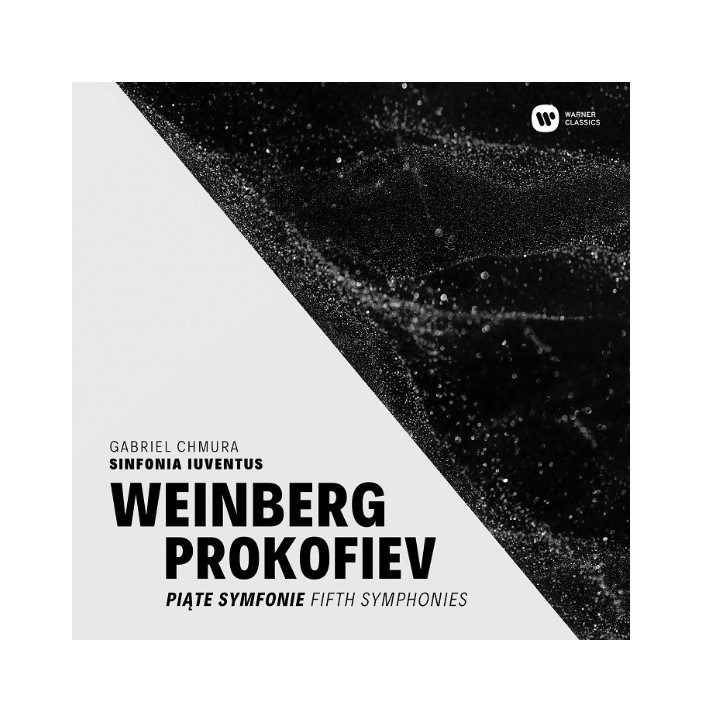New releases
The phonographic market welcomes with curiosity the first album recorded as a result of cooperation between the Polish Orchestra Sinfonia Iuventus, and the Warner Classics label. The superb conductor Gabriel Chmura, and the young ensemble present two „Symphonies No. 5” mentioned in the title – Symphony in F minor op. 76 by Mieczysław Wajnberg, and Symphony in B-flat minor op. 100 by Sergei Prokofiev.
The recording confronts pieces authored by composers who worked not far apart, in the difficult reality of the Soviet Union, when artists’ autonomy was heavily restrained. They, on the other hand, fought for it by hook or by crook. Prokofiev and Wajnberg experienced both the authority’s favours, and persecutions; their works displayed signs of concession and – although allusive – resistance. The history has done justice to them, and the true beauty of both composers’ music turned out to be timeless. Free from ideological contexts of the grim era, now their music amazes listeners around the world. While Prokofiev’s fame has been rock steady for decades, Mieczysław Weinberg, who was born in Warsaw and residing since the war in the Soviet Union, has experienced a renaissance only recently – especially in the country where he came from and which he always considered his homeland.
Composed by Prokofiev during the war (1944), his Symphony No. 5, as opposed to heroic and tragic symphonies by Shostakovich from that period, is rather an expression of escapism. According to the author, it was supposed to be „a hymn in honour of a free and happy man, of his power and noble spirit”. It is an accessible and tonal work that amazes with the beauty of motifs. The predominant feelings breaking through are joy and optimism (although the third movement also includes some tragic tones). The tragic and pompous Symphony No. 5 by Wajnberg (1962) has a completely different character. Composed in response to a performance (25 years after it was composed, due to a strong disapproval of the official Soviet critic) of his beloved spiritual master’s – Dmitri Shostakovich’s – Fourth. The first movement is restless and rhapsodic in character, the second one – elegiac Adagio sostenuto – seems pierced with pessimism and gloom, and the scherzo-like Allegro keeps a regular pulse and meets the criteria of a slightly grotesque „gambol”. The finale strays away from the classicist norm – instead of the usual quick tempo, the composer reaches for an Andantino, concluding the symphony with nostalgia and afterthoughts.
Let’s hope that this interesting album, combining a highly popular piece with a very low-profile one, will arouse interest and approval of listeners. Those who have already been familiar with the extraordinary capabilities of the Polish Orchestra Sinfonia Iuventus (the reviewers are in particular awe at the combination of their impeccable technique, and full sound with youthful energy and sincere expression), and those who will find it out from this excellent recording. More to come soon!
Publisher | Warner Classics
Catalouge No.:| 0190295812713
Date | 2017

